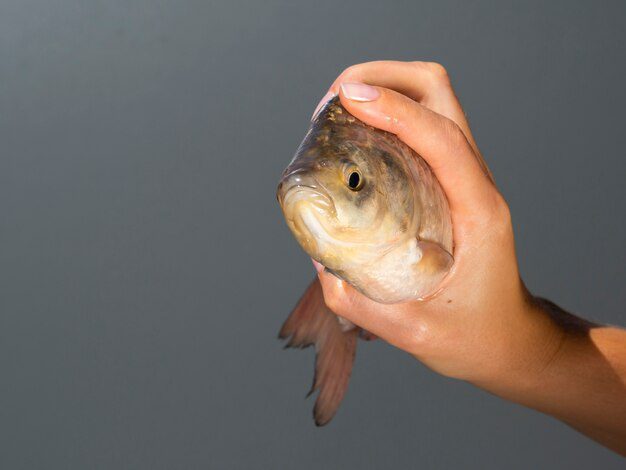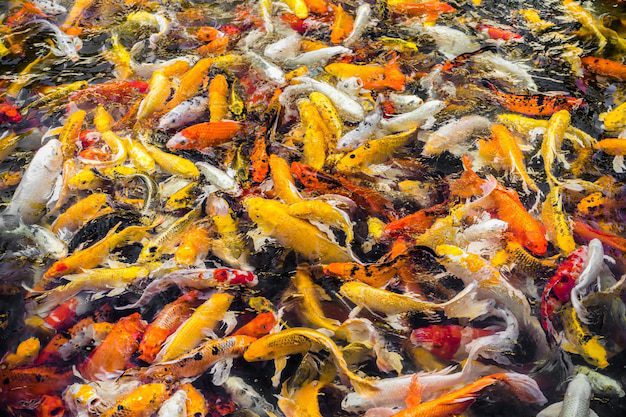How Overfeeding Can Harm Your Aquarium Fish: A Must-Know Guide for Pet Parents

When it comes to pet parenting, feeding your pets is an act of love. And for aquarium fish, those tiny flakes or pellets might seem like the only way to connect. But here’s the surprising truth: too much love can sometimes be dangerous—especially when it comes to food.
Many pet parents unknowingly overfeed their aquarium fish, believing that more food means more health and happiness. However, overfeeding is one of the most common and harmful mistakes in aquarium care. It can lead to a host of problems for your fish, your tank, and your wallet.
At High Furries, we’re dedicated to helping pet parents understand their aquatic pets better. From nutrition plans to tank maintenance and consultations with aquatic experts, High Furries is your go-to partner for complete pet wellness.
Why Do Pet Parents Overfeed Fish?
Let’s be honest—feeding fish is fun! It’s often the only time fish swim up to greet you, and it can feel like a bonding moment. But fish are opportunistic feeders—they’ll eat as long as food is available, even if it harms them.
Common reasons pet parents overfeed:
- Misjudging how much food fish really need
- Believing that fish look hungry all the time
- Multiple family members feeding without coordination
- Lack of information about species-specific dietary needs
High Furries Insight: We’ve found that 70% of first-time fish owners tend to overfeed in the first few weeks. That’s why we offer personalized aquarium care plans and expert consultations.
The Dangers of Overfeeding Aquarium Fish
Let’s look beyond the flakes and dive into the real risks overfeeding poses to your underwater friends and their home environment.
1. Poor Water Quality and Toxic Buildup
Uneaten food sinks to the bottom of the tank, decomposes, and leads to a spike in ammonia and nitrites—substances that are toxic to fish.
Consequences:
- Murky, smelly water
- Algae blooms
- Ammonia poisoning
- Increased filter clogging
High Furries Tip: If you notice your tank water turning cloudy or smelly even after cleaning, overfeeding might be the root cause.
2. Digestive Issues and Constipation
Fish have small stomachs and slow digestion. Overfeeding can lead to:
- Bloating
- Constipation
- Swim bladder disease (difficulty staying upright or swimming normally)
High Furries Advice: Fish floating upside down or stuck at the bottom might not be sick—they could be suffering from overfeeding-related swim bladder issues.
3. Shortened Lifespan
Overfed fish often experience chronic stress and internal damage due to poor water conditions and digestive strain. This lowers immunity and increases susceptibility to diseases.
It’s heartbreaking to lose a beloved pet fish early due to something so preventable.
4. Increased Algae Growth
Excess food increases phosphate and nitrate levels in the tank, encouraging uncontrolled algae growth. This can block light, compete with plants, and suffocate fish.
High Furries Solution: We provide algae management kits and eco-friendly tank cleaners to keep your aquarium fresh and healthy.
5. Aggression and Unequal Feeding
In community tanks, food chaos can cause aggressive behavior. Larger or faster fish may hog the food, leaving slower ones undernourished.
High Furries Feeding Hack: Use target feeding tools and slow-release feeders—available at our store—to ensure fair food distribution.
Signs You Might Be Overfeeding
Many pet parents don’t realize they’re overfeeding until problems arise. Here are the warning signs:
You may be overfeeding if:
- There’s uneaten food after 2–3 minutes
- Water appears cloudy or smells bad
- Algae is growing quickly on glass and decor
- Filters clog frequently
- Fish show signs of bloating or erratic swimming
- Snails or scavengers seem overwhelmed
High Furries Checkup: Our experts can assess your tank and create a personalized feeding plan that matches your fish species and tank ecosystem.
How Often Should You Feed Your Fish?
The answer depends on the species, age, and tank environment—but here are some general guidelines:
Basic Feeding Rule:
Feed only what your fish can consume in 2–3 minutes, once or twice a day.
Goldfish & Bettas:
- 2 small meals per day
- 1–2 pellets or flakes per fish per feeding
Tropical Fish:
- Small amounts once or twice a day
- Fast one day a week to help digestion
Bottom Feeders:
- Feed at night with sinking pellets or algae wafers
- Remove uneaten portions in the morning
High Furries Pro Tip: Add a feeding chart near your aquarium to track feeding times and avoid duplicate meals from multiple caregivers.
Fixing the Damage: What to Do If You’ve Been Overfeeding
First of all—don’t panic. Most overfeeding damage can be reversed with a few simple changes.
Step-by-Step Fix:
- Stop feeding for 24–48 hours to give fish time to digest.
- Clean the tank and remove leftover food and debris.
- Perform a partial water change (25–50%).
- Check filter performance and rinse it if needed (use tank water, not tap water).
- Test ammonia/nitrite levels and monitor daily.
High Furries Toolkit: We offer affordable aquarium testing kits, filter replacements, and safe cleaning solutionsto reset your tank safely.
Feeding Tips for Smart, Healthy Fish
Feeding isn’t just about nutrition—it’s also an opportunity for mental stimulation!
High Furries Feeding Tips:
- Use feeding rings to keep floating food in one spot.
- Try live or frozen treats like brine shrimp or bloodworms (once or twice a week).
- Incorporate “fasting days” for digestion and tank health.
- Use variety: mix flakes, pellets, freeze-dried foods, and veggies.
- Feed based on species: Herbivores, omnivores, and carnivores all have different needs.
Need help? High Furries provides expert consultations for species-specific diets—from neon tetras to Oscars and koi.
Real Talk from High Furries Pet Parents
“I thought my fish needed more food when they swam to the glass, but I was overfeeding. After consulting High Furries, I adjusted their meals and the water cleared up in days!”
— Amit Verma, High Furries Community Member
“I love the feeding tools High Furries recommended—especially the slow-release weekend feeders. Total game-changer when I’m away.”
— Simran Kaur, Fish Enthusiast

How High Furries Can Help You Be a Better Fish Parent
At High Furries, we’re more than a pet store—we’re a wellness partner for pet parents across India.
We offer:
- Customized fish feeding schedules
- Eco-safe tank cleaning products
- Water testing kits
- Virtual aquarium consultations
- Pet supplies delivered to your doorstep
- Fish care guides and diet charts
Whether you’re new to aquariums or managing a thriving aquatic ecosystem, High Furries is here to help your fish swim happy and healthy.
Take Action Today: Keep Your Fish Happy and Thriving!
Think you may be overfeeding your fish? Don’t wait for problems to arise.
Book your personalized aquarium care consultation with High Furries today!
Let our fish care specialists design a plan that keeps your aquarium clean, your fish vibrant, and your feeding stress-free.
🔗 Schedule a Free Fish Care Session Now!
Final Splash: Feeding Is Love—So Feed Smartly
Feeding your fish should be a joy, not a chore or a risk. Understanding their real needs, setting a routine, and watching for warning signs will keep both your fish and your tank in top shape.
At High Furries, we believe that informed pet parenting leads to healthier, longer-living pets. And that includes the ones that swim.
